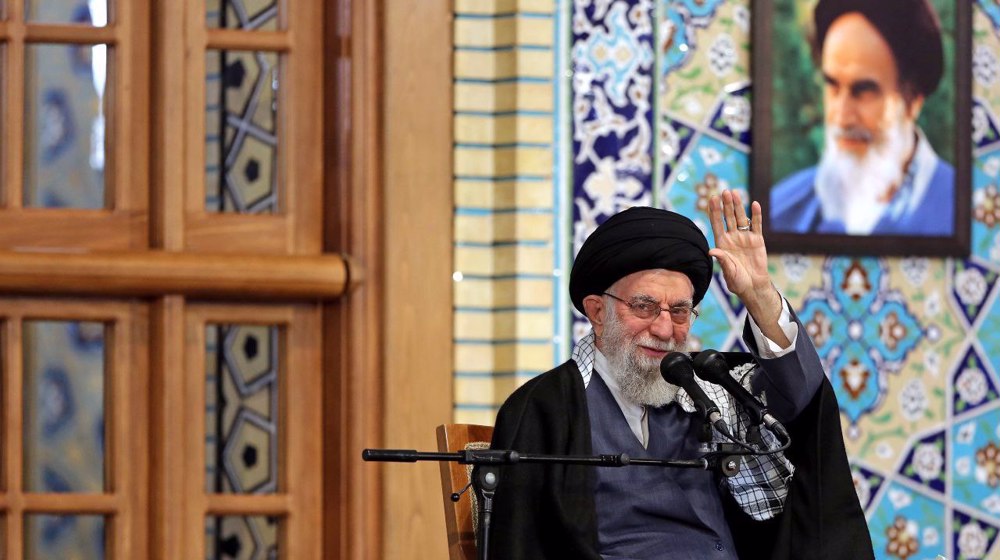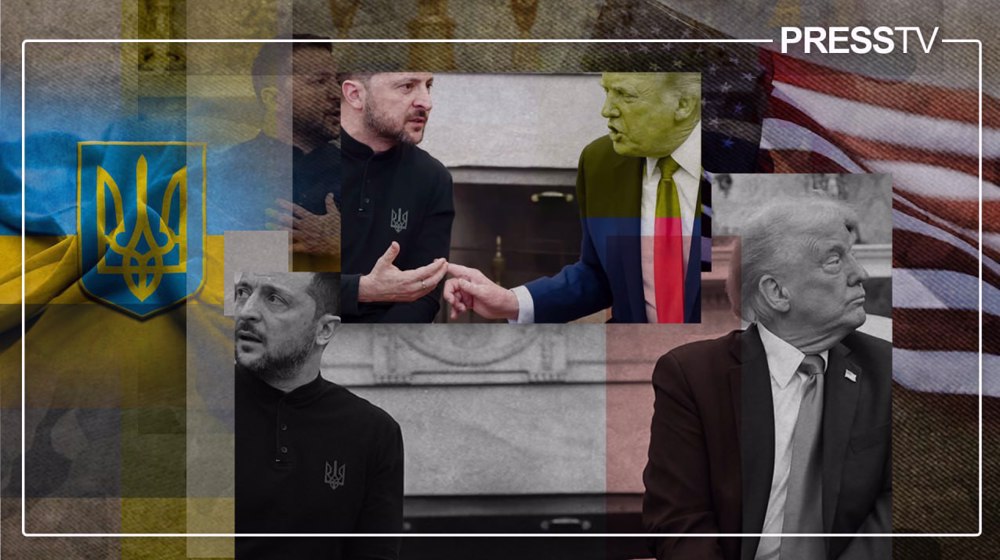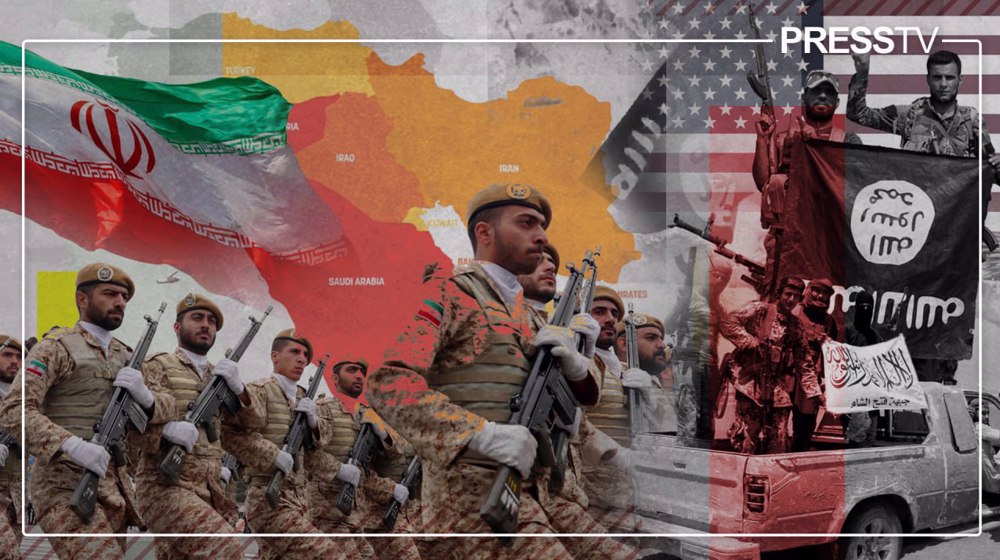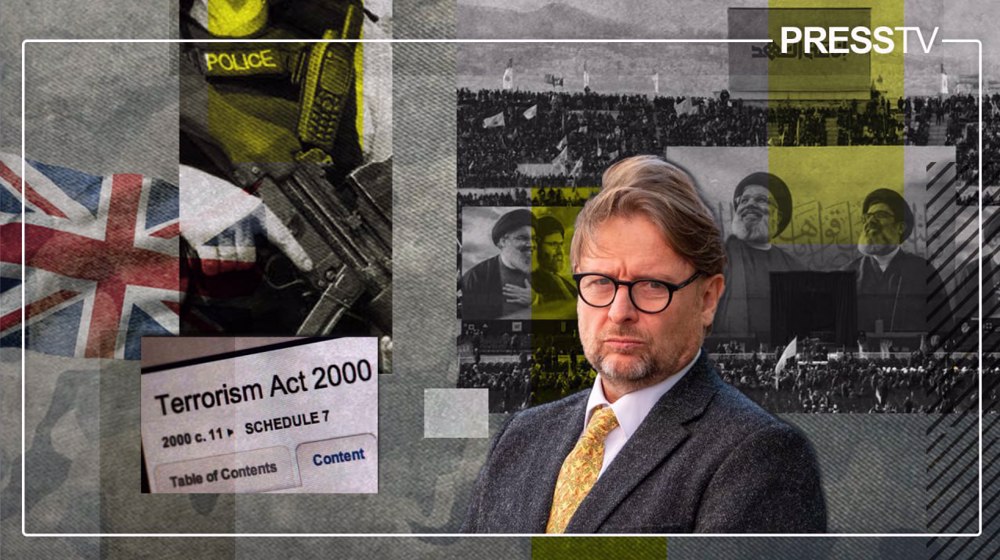Leader's Nowruz speech harbinger of Iran's rise amid geopolitical shifts
By Syed Zafar Mehdi
In a power-packed speech to ring in the new Iranian calendar year in the holy city of Mashhad on Tuesday, the Leader of the Islamic Revolution yet again gave Americans a reality check.
Ayatollah Seyyed Ali Khamenei was back at the magnificent Imam Reza (as) shrine to deliver the traditional Norwuz after three years marked by the global pandemic.
During this period, his public appearances were extremely rare as he walked the talk on strict adherence to COVID-19 health and safety protocols, which proved critical in the country's successful fight against the pandemic and those who weaponized it against Iranians.
Tens of thousands of people from across the country flocked to Mashhad, both to welcome the new year at the revered shrine of the eighth Shia Imam and to listen to the Leader’s speech.
Ayatollah Khamenei, in unequivocal terms, touched on many key issues in his two-hour speech – economic situation, sanctions, recent riots, hybrid war, regional diplomacy, scientific achievements, resistance axis, Ukraine war, America’s costly adventures in the region, etc.
He spoke about the roguish plot of the enemy – to change the identity of the Islamic Republic – which unfolded again during recent riots as Westerners rallied behind rioters and terrorists.
For the past 44 years, since the 1979 Islamic Revolution, Iran has been reeling under draconian sanctions and other pressure campaigns with a singular aim: to reinstate the West-friendly regime in Tehran that is subservient to the hegemon and serves its interests in the region.
But, to invoke the Leader of the Islamic Revolution, the resilient Iranian nation firmly stood against these nefarious plots and thwarted them, as demonstrated again during recent riots.
Ayatollah Khamenei reminded the world of how Western political leaders, including the American president, openly instigated the rioters in Iran and offered them financial and military support to bring the Islamic Republic to its knees.
But the ambitious gambit backfired, yet again, in a very predictable fashion.
The remark was in reference to Joe Biden’s public endorsement of the “regime change” claptrap in November when he told an audience in Los Angeles that “we are going to free Iran”.
The CIA-bankrolled spectacle has since faded into oblivion with things limping back to normalcy much to the chagrin of those who had already written the Islamic Republic’s obituary.
While Iran’s relations with the US and Europe have deteriorated since the outbreak of riots in September last year, the Ebrahim Raeisi government has charted a new course for the country to continue the galloping march ahead – pursuing the neighborhood-centric foreign policy.
Ayatollah Khamenei, approving the government’s forward-looking foreign policy, said the Islamic Republic’s relations with its Asian neighbors have grown stronger and bolstering alliances with African and Latin American countries also figures high on the country’s agenda.
Ebrahim Raeisi's government in Tehran has openly embraced countries in the region, most importantly China and Russia, the two economic and military heavyweights that Western countries fear. Together, the three countries are seen as a new anti-Western power bloc.
Iran's relations with Latin American countries, in particular Venezuela, Brazil and Cuba, have also grown by leaps and bounds amid common challenges facing them. Recently, Iran dispatched its first military vessel to the Panama Canal which grabbed headlines worldwide.
In a major development last week, Iran and Saudi Arabia agreed to restore diplomatic ties after seven years, which came as a thunderbolt to pro-war hawks in Washington and Tel Aviv. The two sides are currently discussing the re-opening of diplomatic missions.
Iran has also expressed readiness to upgrade its diplomatic ties with the United Arab Emirates, Jordan and Egypt and restore relations with Riyadh’s key regional ally Bahrain. These developments are certainly not in favor of “outsiders” that seek to destabilize the region.
These rapid geopolitical shifts, as the Leader said in his Tuesday speech, demonstrate that persistent attempts to isolate the Islamic Republic have failed and backfired on the West.
He, however, left the door open for Europeans “who don’t blindly follow the American policies”, as another sign of the Islamic Republic’s pragmatic and realistic foreign policy.
What Ayatollah Khamenei meant was that the language of force certainly doesn’t work with the country that has survived and thrived despite four decades of multi-pronged war.
“For years, the enemy has been vociferously asserting that it wants to bring the Islamic Republic to its knees,” he said, referring to the hybrid war. “But…you can’t do a damn thing.”
He also categorically dismissed the repetitive claims made by Western countries about Iran’s drone shipments to Russia for use in the Ukraine war, holding the US responsible for fuelling the flames of war and profiting from the misery and blood of Ukrainians.
Iranian authorities have repeatedly asserted that the year-long war in Ukraine must be brought to an end through diplomacy and dialogue, rejecting claims about drone supply to Russia.
So, the writing is on the wall: Iran won’t be intimidated or bullied by sanctions, which keep mounting each day on various false pretexts and accusations. Only dialogue and diplomacy work, not the Donald Trump-designed “maximum pressure campaign”
In the new world order, with American dominance coming to an end and the power center shifting to Asia, it would be wise for the West to recognize Iran as a major world player.
That, perhaps, is a major takeaway from the Leader of the Islamic Revolution’s Nowruz speech this year, which will go down in history as one of the most powerful, impactful speeches ever.
Syed Zafar Mehdi is a Tehran-based journalist, political commentator and author. He has reported for more than 13 years from India, Afghanistan, Kashmir and West Asia for leading publications worldwide.
North Korea slams US military provocations
VIDEO | Iran’s Leader underscores Quran as key to personal, social harmony
VIDEO | Al-Jundi Square, memorial leveled to the ground
Iran asks Turkish officials to avoid making incorrect remarks
OPEC+ to raise output for first time since 2022: Report
VIDEO | Reviving Gaza mosque
Grossi stresses IAEA pursues constructive relations with Iran
Editor of Pulitzer Prize-winning US newspaper fired over cartoon deemed ‘antisemitic’










 This makes it easy to access the Press TV website
This makes it easy to access the Press TV website